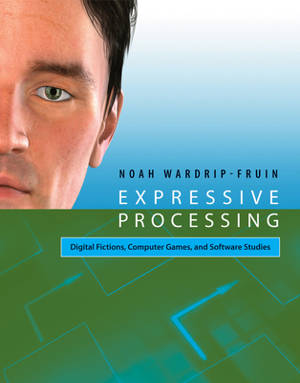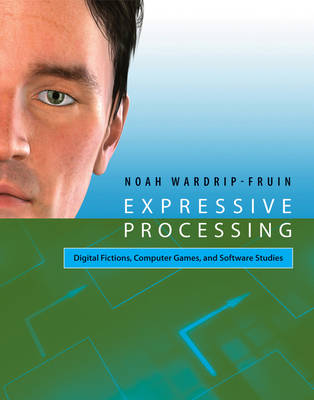
- Afhalen na 1 uur in een winkel met voorraad
- Gratis thuislevering in België vanaf € 30
- Ruim aanbod met 7 miljoen producten
- Afhalen na 1 uur in een winkel met voorraad
- Gratis thuislevering in België vanaf € 30
- Ruim aanbod met 7 miljoen producten
Omschrijving
From the complex city-planning game SimCity to the virtual therapist Eliza: how computational processes open possibilities for understanding and creating digital media.
What matters in understanding digital media? Is looking at the external appearance and audience experience of software enough--or should we look further? In Expressive Processing, Noah Wardrip-Fruin argues that understanding what goes on beneath the surface, the computational processes that make digital media function, is essential.
Wardrip-Fruin looks at "expressive processing" by examining specific works of digital media ranging from the simulated therapist Eliza to the complex city-planning game SimCity. Digital media, he contends, offer particularly intelligible examples of things we need to understand about software in general; if we understand, for instance, the capabilities and histories of artificial intelligence techniques in the context of a computer game, we can use that understanding to judge the use of similar techniques in such higher-stakes social contexts as surveillance.
Specificaties
Betrokkenen
- Auteur(s):
- Uitgeverij:
Inhoud
- Aantal bladzijden:
- 482
- Taal:
- Engels
- Reeks:
Eigenschappen
- Productcode (EAN):
- 9780262517539
- Verschijningsdatum:
- 17/02/2012
- Uitvoering:
- Paperback
- Formaat:
- Trade paperback (VS)
- Afmetingen:
- 173 mm x 221 mm
- Gewicht:
- 739 g

Alleen bij Standaard Boekhandel
Beoordelingen
We publiceren alleen reviews die voldoen aan de voorwaarden voor reviews. Bekijk onze voorwaarden voor reviews.












